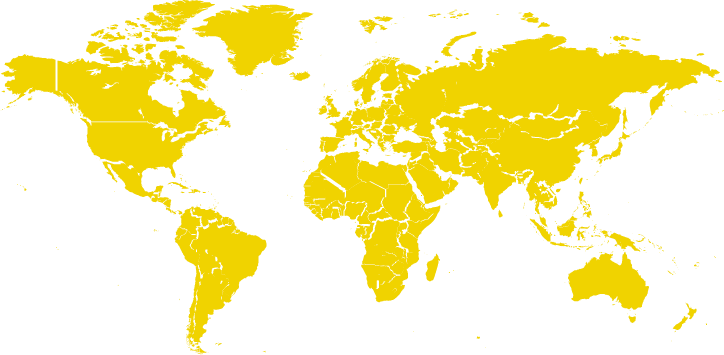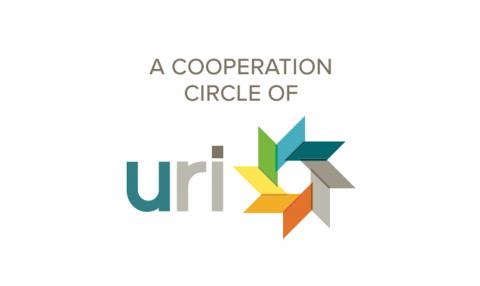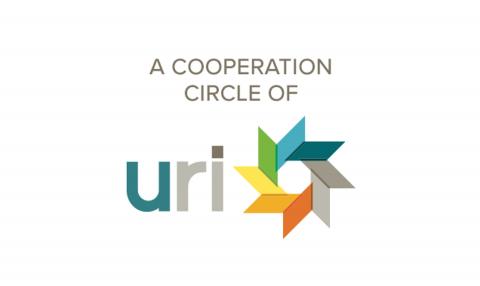
"Hands of a Spinner" by Oxfordian Kissuth via Wikimedia Commons
The three featured URI Cooperation Circles bring women together across religious, ethnic, and traditional boundaries. Using common goals and shared values to cut across harmful stereotypes, their work benefits the community as a whole.
Gujrat CC (Ahmedabad, India)
Gujrat Cooperation Circle members work in a volatile area where Muslims and Hindus “are ready to fight on the slightest pretext.” Cooperative bridge building is essential if the two communities are to learn to interact with each other peacefully. The CC’s work includes bringing Hindus and Muslims together to collaborate in holding religious festivals, as well as organizing campaigns to prevent and end violence against women in conflict areas within India. Members also visit relief camps after communal violence to provide victims with support.
“Before our work there was no interaction between women of Hindu and Muslim communities. When we initiated work for economic empowerment of women from both communities they came together to fight their common enemy: poverty and various disabilities that arise from weak financial support.” Because women of both groups were suffering from various economic challenges, the issue brought Hindu and Muslim women together. “Fighting day- to-day problems together allows them to understand each other’s community, problems, biases and prejudices against each other. Talking about their religions in a safe and honest atmosphere where friendships are encouraged between individuals will assist them in better understanding the work of fundamentalist organizations, which are bent upon making them fight on the basis of religion.”
Through patient work, the CC has helped women achieve economic empowerment and has allowed them to become employed in various types of household jobs. “Through these efforts the women saw the benefits of cooperation and came to the realization that their problems are the same irrespective of religion.” Because of this, Muslim and Hindu women started interacting among themselves.
“In our programme’s beginning stage, a Muslim woman did not accept me because I was a Hindu woman. They were suspicious of me. I am now talking about the rights of women in the Quran. I am teaching Muslim women about the provisions of divorce and maintenance and other rights in the Quran. Muslim women who did not accept me before are not only coming to our programmes but are accepting of a Hindu woman talking about the rights of women in the Quran. This is a great achievement, and a great example of how our CC has successfully been able to build bridges between Hindu and Muslim women.”
CLICK HERE TO READ THEIR FULL CC PROFILE
Vision Young Mothers (Kibera, Nairobi, Kenya)
Vision Young Mothers (VYM) Cooperation Circle works in the impoverished community of Kibera within Nairobi, Kenya. Their membership consists of over sixty Muslim and Christian women from various ethnic groups. Interfaith work is especially necessary in Kibera because of the recurring violence between ethnic groups during election periods.
The members of VYM act as mentors and ambassadors for interfaith peace in their communities by offering mentorship and presentations in schools to raise awareness of HIV/AIDS and family planning. They also focus on building strong relationships within the group through economic empowerment programs, table banking (community micro-finance), and by encouraging members to participate in each other’s religious events and traditions. “Our members attend each other’s ceremonies and events as a sign of cooperation and even dress in each other’s religious clothing — making it hard to identify us - unless one asks for their names. This cooperation is important because we cannot reach out to others without having the conviction of love for all amongst ourselves.”
The group focuses on helping women, many of whom are semi-illiterate, to understand their shared situations and common needs across ethnic boundaries. “As they get along and know each other, ties develop and most of them develop friendship. Besides work, we also encourage joint private activities such as inviting each other to family ceremonies such as birthday parties, weddings and funerals.”
VYM also practices outreach to help women expand their career options. “We have observed a change of trend whereby young women who were previously involved in prostitution setting up small businesses as alternative sources of income. Also, through our mentorship programmes in schools, the number of young mothers has reduced significantly, hence a sign that young people are beginning to perceive life differently.”
CLICK HERE TO READ THEIR FULL CC PROFILE
United Religions Initiative Ladhak Branch CC (Jammu and Kashmir, India)
United Religions Initiative Ladakh Branch CC is located in Ladakh, Jammu Kashmir and works to uplift downtrodden and marginalized communities. Their programs include girl child education and caring for sick, elderly, disabled and visually impaired people. CC members hold bridge-building activities such as hosting community meetings, organized cultural activities, interfaith dialogues, collective celebrations of festivals, and organized sports meets. As a result of their programs, “School education and empowerment of women has gained popularity. Our intake in school admissions has increased. Our events are consistently engaging more participants from other faiths. We have also seen more interfaith marriages taking place.”
Through their work with one another, people of different traditions within the same community have learned better how to cooperate and coexist. Here is one such example: “In Laddakh, besides the name and religious affiliation it is difficult to differentiate who is Muslim and Buddhist. Everyone’s language, dress, and food preferences are very similar (except for Halal meat requirements). My sister is a Buddhist and married a Muslim. After initial resistance, the relationship between the two families improved, and frequent visits increased. The only issue was that my sister and her kids cannot eat non-vegetarian food in their home. In some Himalayan social traditions not offering meat-share to any one of the family member is against social etiquette. My sister came to visit her mom’s house with her children, and was offered food with meat. She refused stating her in-laws will get offended, as she’s a Muslim she is not supposed to eat meat, unless it is Halal. In the end, she was not able to refuse the meat and requested no one to share this news with her in-laws. Later she confided with her husband. Knowing the Ladhak Buddhist social tradition of meat-share, he told her that she can have non-halal meat outside, but not in their family home. This story illustrates how two communities can make adjustments with food and religious traditions in an emerging pluralistic society. They are setting trends that will pave the way for future generations of interfaith relationships.”
CLICK HERE TO READ THEIR FULL CC PROFILE




